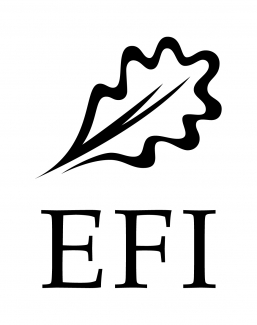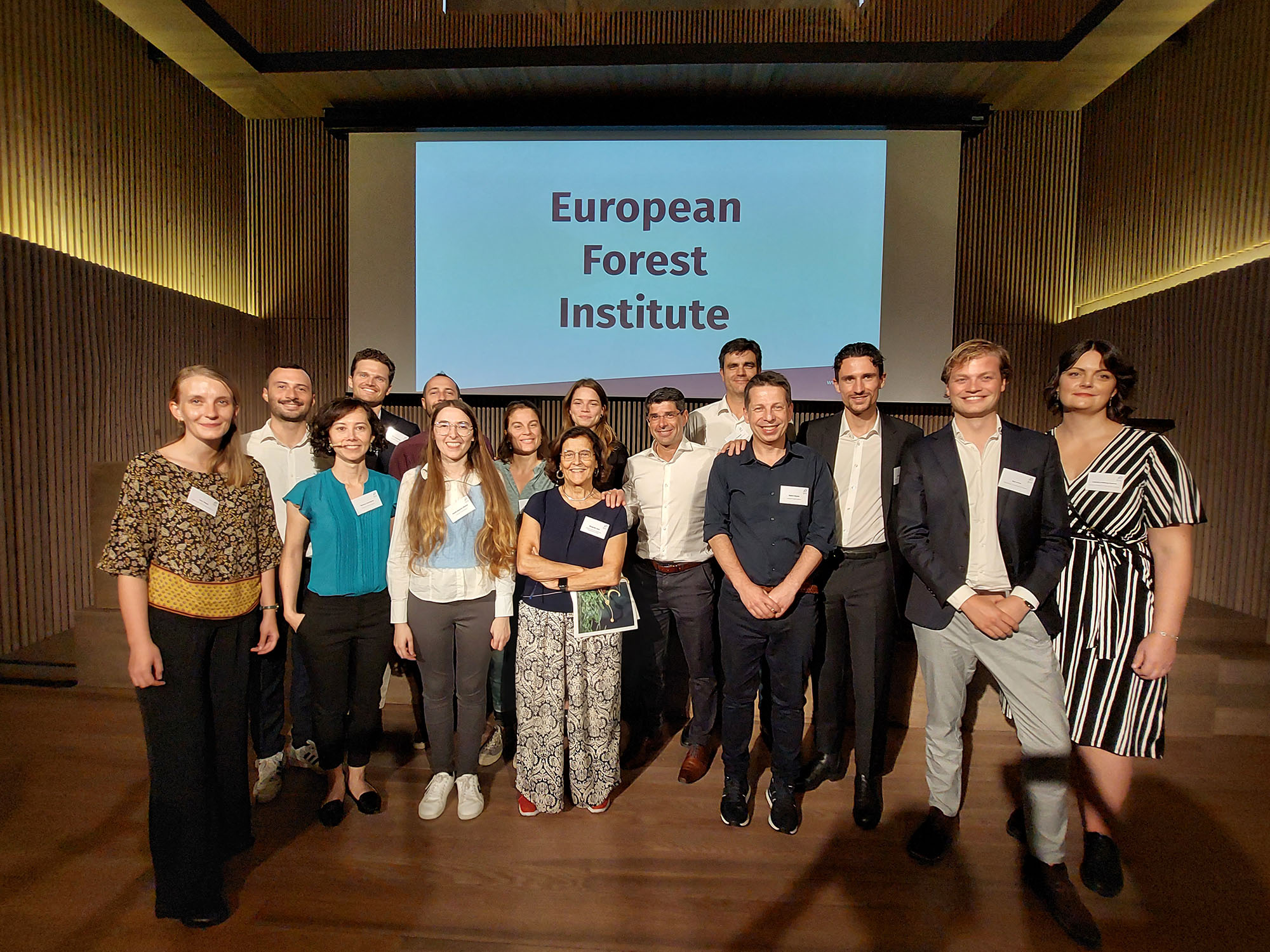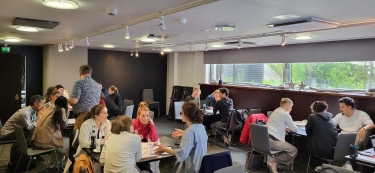Young Scientists Session on Climate Smart Forestry

Wednesday, 5 October 2022
The young scientists took the EFI Annual Conference by storm with a slick and sophisticated session on Climate-Smart Forestry (CSF). Through the diverse presentations of their ongoing research, culminating with an intergenerational panel discussion, they were keen to focus on putting discussion into action and pushing concepts into collaboration.
The session, introduced and moderated by Sara Filipek (Wageningen Environmental Research), explored the CSF concept and began with a Europe-wide perspective, before zooming in to regional and local approaches.
Bas Lerink (Wageningen Environmental Research) underlined how the Climate Smart Forestry Network, one of EFI’s four Research Networks, are intent on helping forest managers to put no regret CSF methods into practice. Connecting researchers and institutes working on CSF across Europe, they collect and demonstrate projects working on experiments, measuring, monitoring, and capacity building for CSF.
|
Three pillars of Climate Smart Forestry:
|
Núria Aquilué (Forest Sciences Center of Catalonia—CTFC) followed with a study from Catalonia, Spain. In a region where two thirds of the territory is forest, yet only 0.06% GDP comes from the forest sector, they are using the FORMES projection system to simulate forest stand dynamics as a function of alternative management scenarios. Findings indicate a clear need for participatory multi-objective forest planning and payments for ecosystem services.
Bringing CSF to the local level, Isabella Hallberg Sramek (Swedish University of Agricultural Sciences – SLU) considered what this means in practice for people living in the area. Using forest excursions with local stakeholders in northern and southern Sweden, they discussed what people understand about the term CSF, and the barriers or pathways for its implementation. These group discussions and qualitative analysis are part of wider process on how local communities can adapt to climate change.
The session then introduced some ongoing research on diverse factors for CSF. Joyce Machado Nunes Romeiro (Climate Smart Forestry Norway) is investigating bark beetle risks under climate change conditions, a major concern whose outbreak peaks have not yet been modelled in Norway. Underlining that we need to be aware of the risks to be able to adapt, models show that outbreak peaks are likely to increase under climate change.
Ditlev Otto Juel Reventlow (University of Copenhagen) is also in Norway, considering how Norway spruce plantations on poor sites could be converted to species better suited for the future climate. Testing shelterwood underplanting for Silver Fir, Douglas Fir and Beech, findings have so far revealed that mixed underplantings are important for stand resilience.
Nicola Bozzolan (Wageningen Environmental Research) is exploring how CSF and downstream wood products might enhance climate change mitigation using wood flows, modelling and scenario analysis. However, it remains to be seen how the industry will react and how they will use wood in the future.
Maximilian Schulte (Swedish University of Agricultural Sciences – SLU) is investigating climate change mitigation of Nordic forest management strategies and substitution effects of wood products. Using a system perspective with time dynamic, he uses the Heureka tool to calculate carbon storage potentials of wood products, before adding in substitution effects. He observes that switching to a demand perspective can create better substitution scenarios.
The session concluded with a moderated panel discussion on the future of CSF and how it relates to other forest management concepts. Moderated by Yasmin Imparato Maximo (EFI), four “young” researchers spanning several decades shared their perspectives from across Europe on how CSF can enhance climate change mitigation in forests.
The discussion considered adaptation as well as mitigation, societal aspects alongside forest management and the complexity of nature and its response to human attempts at forest management and governance. Science-based scenarios alongside socioeconomics indicate that strengthening the forest-based bioeconomy and establishing more payments for ecosystem services are needed, as well as legislation.
Putting science into action is a challenge but EFI is well-placed to support this. Perhaps the focus needs to change from what we are talking about to who is doing the talking, bringing in more stakeholders, finding new ways of governance and making forest management more attractive for landowners. The sector is on a transformative path but if we want to ensure that our forests are smart and sustainable in the future, we need to expand the focus from carbon to forest health, biodiversity and resilience, in the long term.
Panellists were Mariana Hassegawa (EFI), Marco Patacca (Wageningen Environmental Research), Margarida Tome (Instituto Superior de Agronomia, Universidade de Lisboa) and Antoni Trasobares (Forest Sciences Center of Catalonia – CTFC).
Robert Mavsar (EFI) congratulated the young scientists on the session, thanking the session organisers (Baz, Mariana, Yasmin, Sara and Marco) and the presenters, who had won a competitive grant process in order to participate. The refreshing perspectives and debate suggest that the concept should be repeated at future EFI Annual Conferences.
Photo: Sarah Adams



